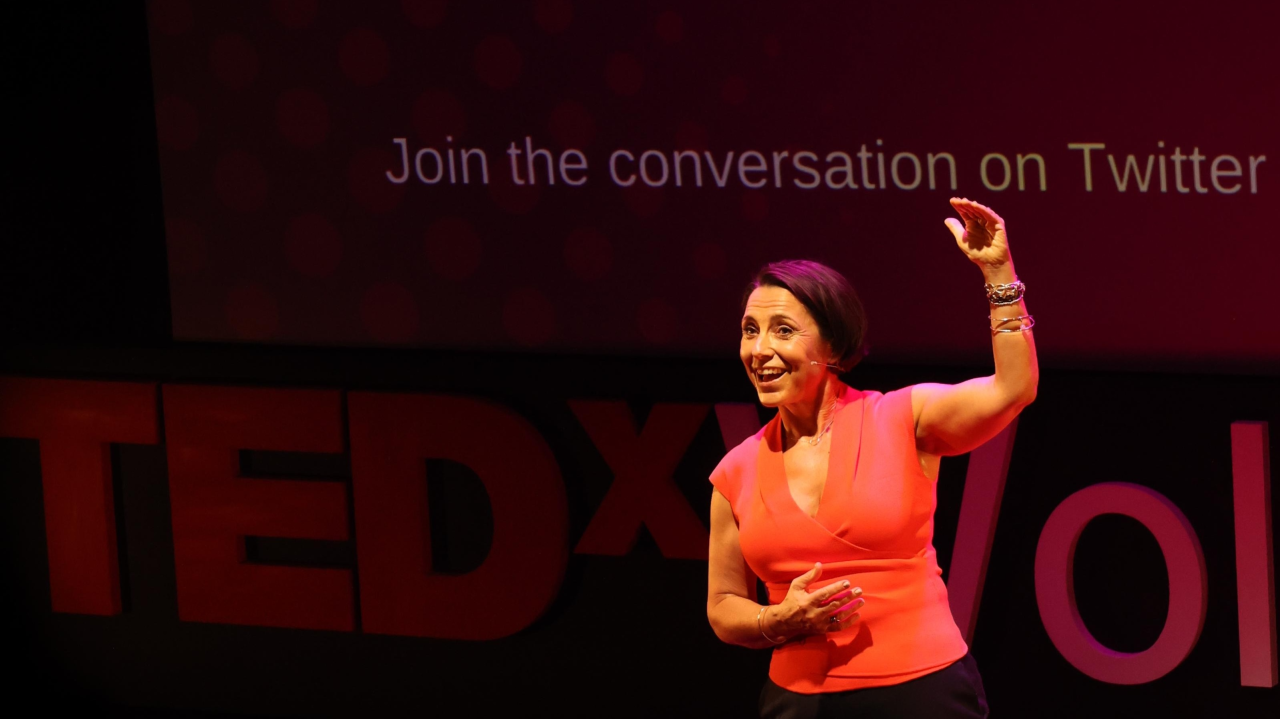
Bridging Generations: How to Turn Differences into Workplace Strengths
Generations at a Crossroads: Debunking Myths and Bridging Divides
The workplace is evolving faster than ever, and with it comes a new set of challenges—especially when it comes to understanding and navigating the different generations working side by side.
In my recent TEDx talk, Generations at a Crossroads: Debunking Myths, Bridging Divides, I explored how our generational backgrounds shape our values, work ethics, and communication styles. These insights are essential if we want to build a cohesive, productive workplace that is also a bit more enjoyable for everyone.
A Defining Moment: How Our Generational Values Shape Us
It all started with a late-night phone call while I was juggling the chaos of work and motherhood. Like many of my fellow Gen Xers, I was raised with that "work hard, play hard" mentality. Staying late at the office wasn’t just expected; it was a badge of honour. But what’s the actual cost of this mindset?
And how do these profoundly ingrained beliefs influence how we approach work-life balance today?
Generational cohort theory tells us that the events and environments we grow up in have a lasting impact on our values as adults. Boomers, for instance, grew up during a time of economic prosperity and significant social change. While they’re often seen as more conservative or resistant to change (especially regarding tech), let’s not forget that trailblazers like Steve Jobs and Bill Gates!
Myths and Realities: Understanding the Generations
Every generation has its stereotypes, but how accurate are they?
Let’s break it down:
Understanding these generational traits isn’t about pigeonholing people; it’s about recognising each group's strengths and how we can use them to create a more inclusive and effective workplace.
Debunking Myths: The Effort Paradox, Reward Conundrum, and the Fast Track
In my talk, I tackled three common myths that often cause friction between generations:
The Effort Paradox:
There’s a misconception that younger generations don’t want to work hard. The reality? Millennials and Gen Z are redefining what hard work looks like—they’re focused on results and impact, not just clocking hours.
The Reward Conundrum:
While older generations might value monetary rewards and long-term career paths, younger folks seek work that aligns with their values. The key is creating a reward system that taps into extrinsic and intrinsic motivations.
The Fast Track:
There’s a belief that younger workers want to climb the ladder too quickly. But what they’re looking for is mentorship and meaningful feedback. They want to grow and know that they’re on the right path.
Moving Forward: Embracing Generational Diversity
Generational diversity isn’t just a buzzword—it’s a game-changer. By understanding and leveraging each generation's unique perspectives, we can create workplaces that are more innovative, more inclusive, and better equipped to face the challenges of the future.
As leaders, it’s our job to ensure that everyone, regardless of age or background, feels valued and heard. Whether that means adopting a mentorship role or being more aware of our biases, the goal is creating a culture where everyone can thrive.
To borrow a quote from Brian Chesky, CEO of Airbnb, who quoted Walt Disney: "Walt had one foot in the past and one in the future." That’s exactly where we are today—honouring the wisdom of the past while embracing the possibilities of the future.
Shape the Future Together
By bringing the strengths of every generation to the table, we can create a workplace culture that’s sustainable and thriving. The choice is ours: do we resist and judge, or do we stay curious and open? I’m all in for the latter. Let’s work together to build a future where everyone feels seen, heard, and valued regardless of their generation.
Thanks for reading! If you’re interested in diving deeper, I’d love for you to check out my TEDx talk here: https://youtu.be/2D77lXDtK0w?si=A6fLcV7UXdqNk4rD.
Let’s keep the conversation going!
About Adele:
Adele Stickland is an experienced workplace trainer, TEDx speaker, and MSc Organisational Psychologist. Specialising in generational dynamics and employee well-being, Adele helps organisations enhance communication, boost productivity, and create inclusive work environments. As an ICF Accredited Coach, Adele combines her academic knowledge with real-world experience to provide practical, impactful solutions.
Connect with me here on LinkedIn to continue the conversation on bridging generational divides in the workplace.
#GenerationalDiversity #WorkplaceCulture #EmployeeEngagement #Leadership #Communication #TEDx #OrganisationalPsychology